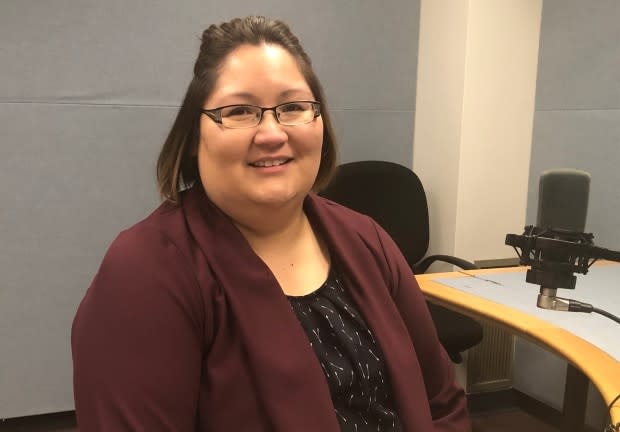How do you support kids with autism during a pandemic? With creativity, Yellowknife mom says
When school in the Northwest Territories was cancelled, Yellowknife mom Renee Sanderson's two sons on the autism spectrum were left without program assistants, classes, or interaction with friends. Everything, she says, "kind of stopped."
Sanderson says the sudden disturbance in routine meant a lot of meltdowns and frustration. But eventually, she realized her family had to figure out a way to make this new dynamic work.
"We need to get used to this kind of living for a while. We don't know how long that's going to happen for," she said.
Sanderson's family is one of several in the North who have spent the last two months learning to adjust the routines of pre-pandemic life so that children on the autism spectrum or with intellectual disabilities can keep getting the education and support they need.
And while those changes have often been hard, they've also allowed parents, educators and caregivers to explore new ways to connect with the children they care for.
Inclusion camp — with a twist — starts this week
When COVID-19 restrictions hit while families were on March Break, the executive director of the non-profit Inclusion NWT knew that business as usual wasn't an option.
Talking with families, Lynn Elkin agreed the group would put its in-person support work on hold except for in emergency situations. Instead, it offered a variety of freshly sanitized games and toys in bright yellow bags to parents, and set up video chats between kids and their assistants.

"We really didn't know where things were going to move," Elkin said. "Some of our little guys just totally don't get why they're having to stay at home at all in the house."
As things moved along, workers and kids found creative ways to spend time together, like going outside or riding bikes, something Sanderson says let her boys go outside while she and her husband got a break.
Starting this week, Inclusion NWT is also hosting its teen summer camp a month early, and opening it up to children 12 and under as well.
The camp, called the "summer buddy program," will be made up of small groups and one-on-one teams that allow for physical distancing.
"I think people are being really creative," Elkin said. "This is going to be a real workout for everybody as we figure out how to make it work."
Time to rethink education, autistic advocate says
Sanderson says the time at home has also allowed her to teach her boys more life skills they can use outside of school, like cooking, doing crafts and using tools. That's something the co-founder of Autistics For Autistics Ontario hopes will continue after the pandemic.
"For some Canadian autistic kids, it's a relief to be away from school," Anne Borden, who is autistic, told CBC North. "I was talking to one dad ... he was saying to me that he really is loving this one-on-one time with his son where they don't have the distractions of having to be rushing somewhere."
To really think outside the box...I hope that continues. - Renee Sanderson, Yellowknife mom
Borden hopes educators learn from what's working right now, to make their classrooms more inclusive. She's hearing from youth in her organization that quieter spaces and online learning have made them more comfortable, and better able to learn.
Sanderson says that's something her son Kane, 8, has found with online classes and more hands-on activities.
"To really think outside of the box and do more life skills with him … I hope that continues," she said.
The Northwest Territories education department said in May it was working with school districts on making sure students with support plans receive an adequate education.

At the time, Sanderson was applying for more care for her sons through Jordan's Principle, which says that Indigenous children on or off reserve are entitled to the same support. But she says it would have been nice to get more help from the territorial government as she navigated that system.
"I had to apply on my own," she said.
If parents of autistic kids are worried the time with less support may mean their kids fall behind on other skills, Elkin encourages people to keep perspective.
"If there's been a little backslide ... that's okay," she said. "We'll just work at it and make it fun."
Speaking of fun, Sanderson's son Marshall, 6, says he's having a lot of it at home.
"I get to do whatever I want and be sneaky," he said in a joint FaceTime call with CBC and his mom. "Every night at bedtime I always sneak [around] for food."
"Well," his mom replied, with a smile in her voice, "now I know."


